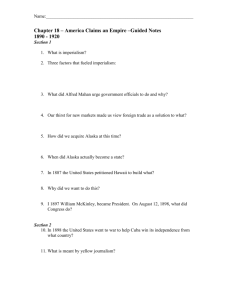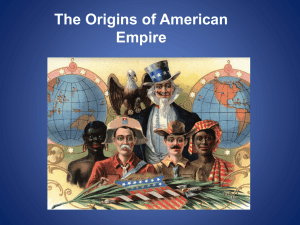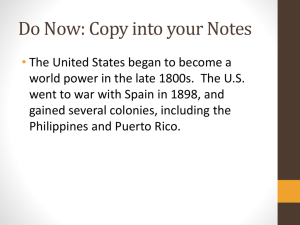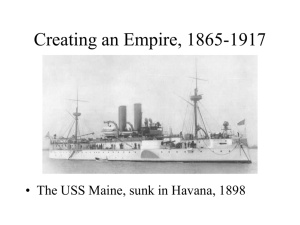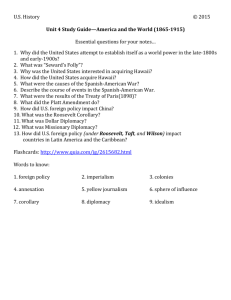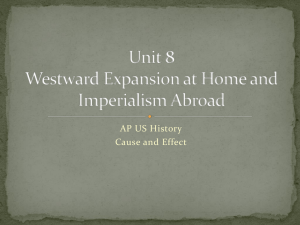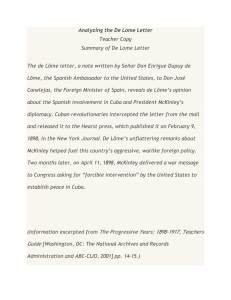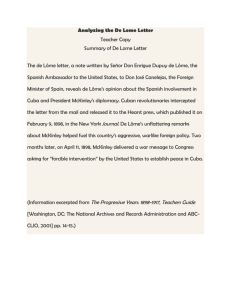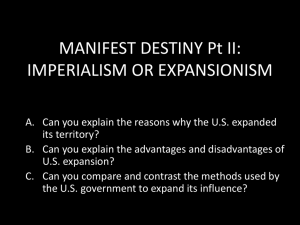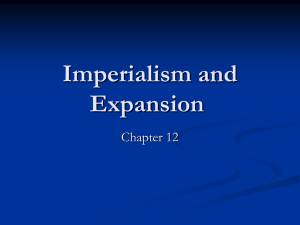American Foreign Policy, 1865
advertisement
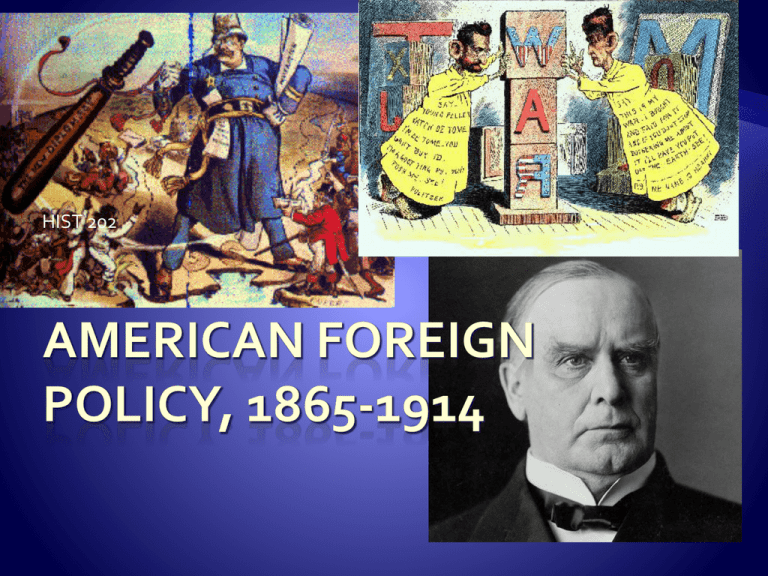
HIST 202 We are Anglo-Saxons, and must obey our blood and occupy new markets, and, if necessary, new lands. - Sen. Albert Beveridge (1898) Our form of government, our traditions, our present interests, and our future welfare, all forbid our entering upon a career of conquest. - William Jennings Bryan (1898) Isolationism Looking westward in U.S. George Washington’s final speech Civil War changes the way we see ourselves in the world William H. Seward Secretary of State Under Lincoln and Johnson Helped prevent British and French from entering war Convinced annexation of Hawaii and purchase of Alaska Alaska (“Seward’s Folly”) Russia and Great Britain claimed it Russia – used it for hunting Economic burden Found a buyer in Seward 1867 – purchased Alaska for $7.2 million 19th Century industrialization led to Worldwide markets Growing surpluses Open sources for raw materials U.S. NEEDED TO STRETCH OUT AND EXPAND!!!! Only the strong survive! Expansionists believed: U.S. had to be strong Militarily Religiously Economically Politically Imperialism To gain territory Gain political and economic life of other countries Britain, France, Russia, and Japan had possessions throughout the world! Missionaries Josiah Strong – Our Country Politicians Henry Cabot Lodge (MA) Theodore Roosevelt (NY) Military Alfred Mahan – The Influence of Sea Power Upon History Popular Press Increased circulation Told Americans about exotic places abroad America was the protector of Latin America Pan-American Conference (1889) James Blaine Pan-American Union (1948) President Cleveland/Richard Olney (1895-96) Venezuela/British Guiana Used Monroe Doctrine against Britain Britain sided with U.S. Causes: Jingoism – aggressive foreign policy Cuban revolt – Cuba v. Spain Yellow journalism – sensational stories Joseph Pulitzer William Randolph Hearst Causes (cont.) De Lome Letter Dupuy De Lome – critical of Pres. McKinley USS Maine 260 Americans killed April 1898 Protect Cuban interests Protect American interests (sugar) Protect commerce and trade End “constant menace to our peace” April 20, 1898 U.S. declared war on Spain Teller Amendment U.S. did not want to take anything away from Cuba Cuba would be in control of its govt. Philippines Under Spanish control since 1500s Roosevelt ordered George Dewey to invade Philippines War was won quickly by capturing Manila Bay Cuba Ill-prepared Army San Juan Hill Theodore Roosevelt “Rough Riders” Buffalo Soldiers U.S. Navy crushed Spanish at Santiago Bay War ended August 1898 Hawaii Settled by missionaries and businessmen 1893 – U.S. overthrew Queen Liliuokalani 1900 – U.S. territory U.S. state in 1959 William McKinley - R W William Jennings Bryan - D John Hay Sec. of State under Pres. McKinley “Open Door” trade with China Boxer Rebellion (1900) – Society of Harmonious Fists “Speak softly and carry a big stick” Panama Canal Roosevelt Corollary to the Monroe Doctrine More extension in Latin American affairs William Taft (1909-1913) Focus was in China and Latin America Believed that investors and cash could help with relations Financial investments = greater stability Henry Cabot Lodge R – Massachusetts Attention was on Latin America and Asia Believed that no nonwestern countries should own territories in West Infuriated Asia Woodrow Wilson First term – 1913-17 Wanted to “right” all of the “wrongs” Set up over 30 conciliation treaties throughout the world Puerto Rico Panama Canal
